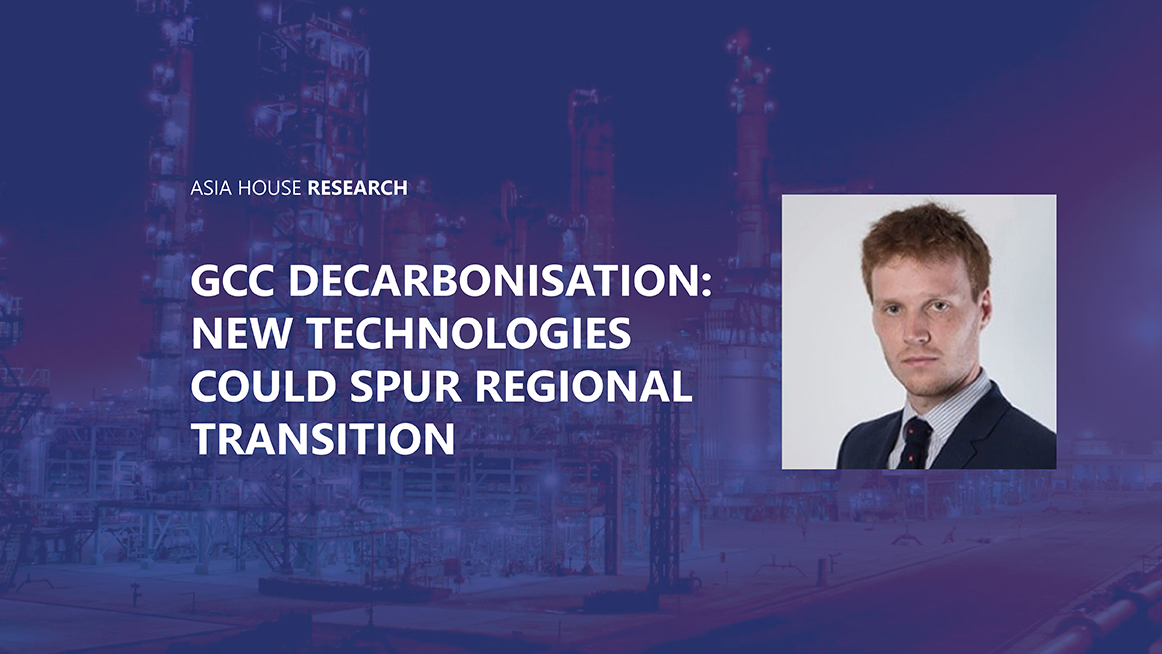Driving commercial and political engagement between Asia, the Middle East and Europe
Driving commercial and political engagement between Asia, the Middle East and Europe
Driving commercial and political engagement between Asia, the Middle East and Europe

COP26 Regional Ambassador for the Middle East and Africa, Janet Rogan will brief Asia House Corporate Members on 15 September. Ahead of the discussion, Asia House Middle East Associate Freddie Neve takes stock of recent green policy developments in the region, and argues that more investment is needed to support the Gulf’s vision for global decarbonisation.
 Freddie Neve
Freddie Neve
Asia House Middle East Associate
Freddie leads the Asia House Middle East Programme, convening briefings and events with leading business and policy figures and conducting research focused on the region.
Key takeaways
